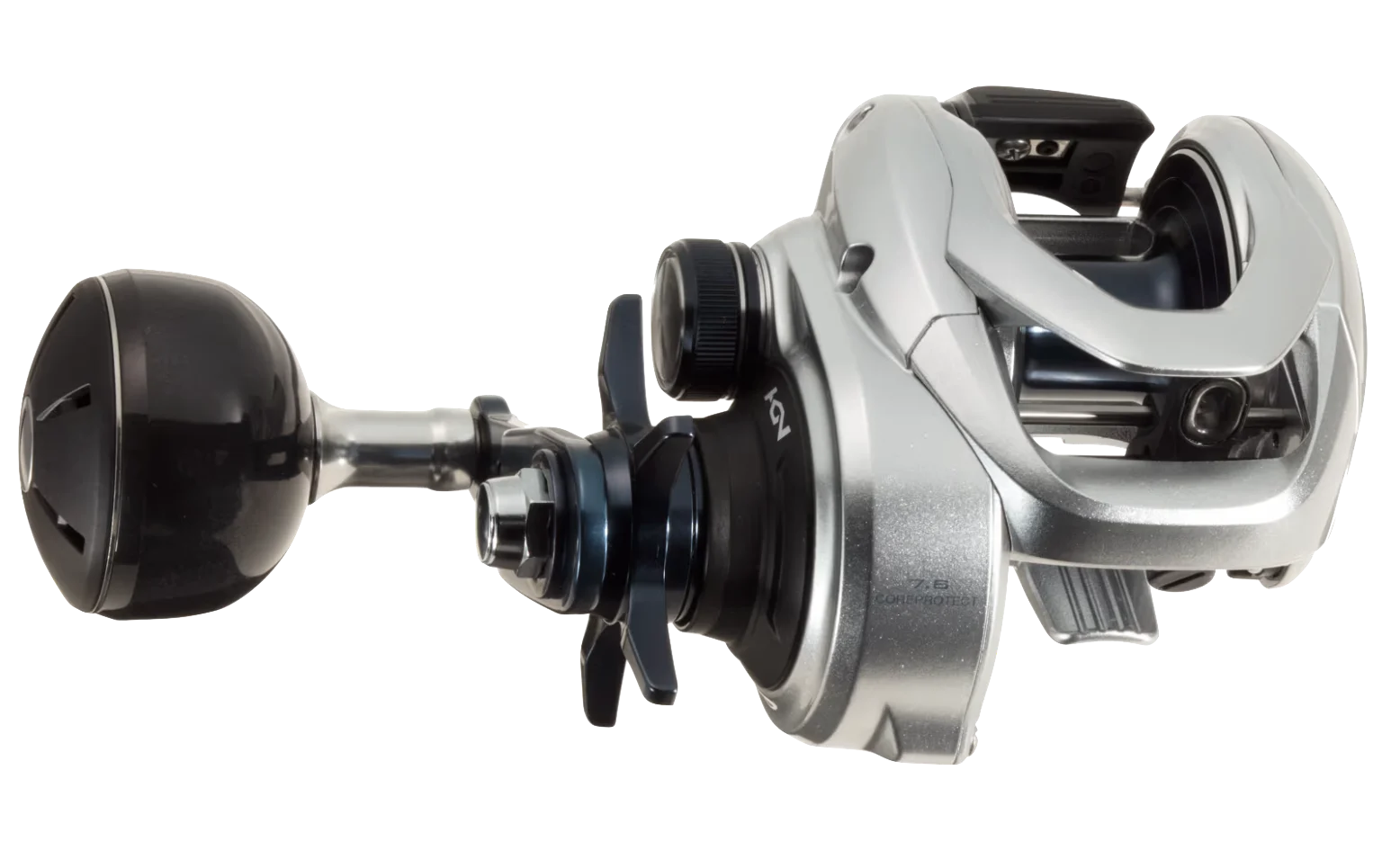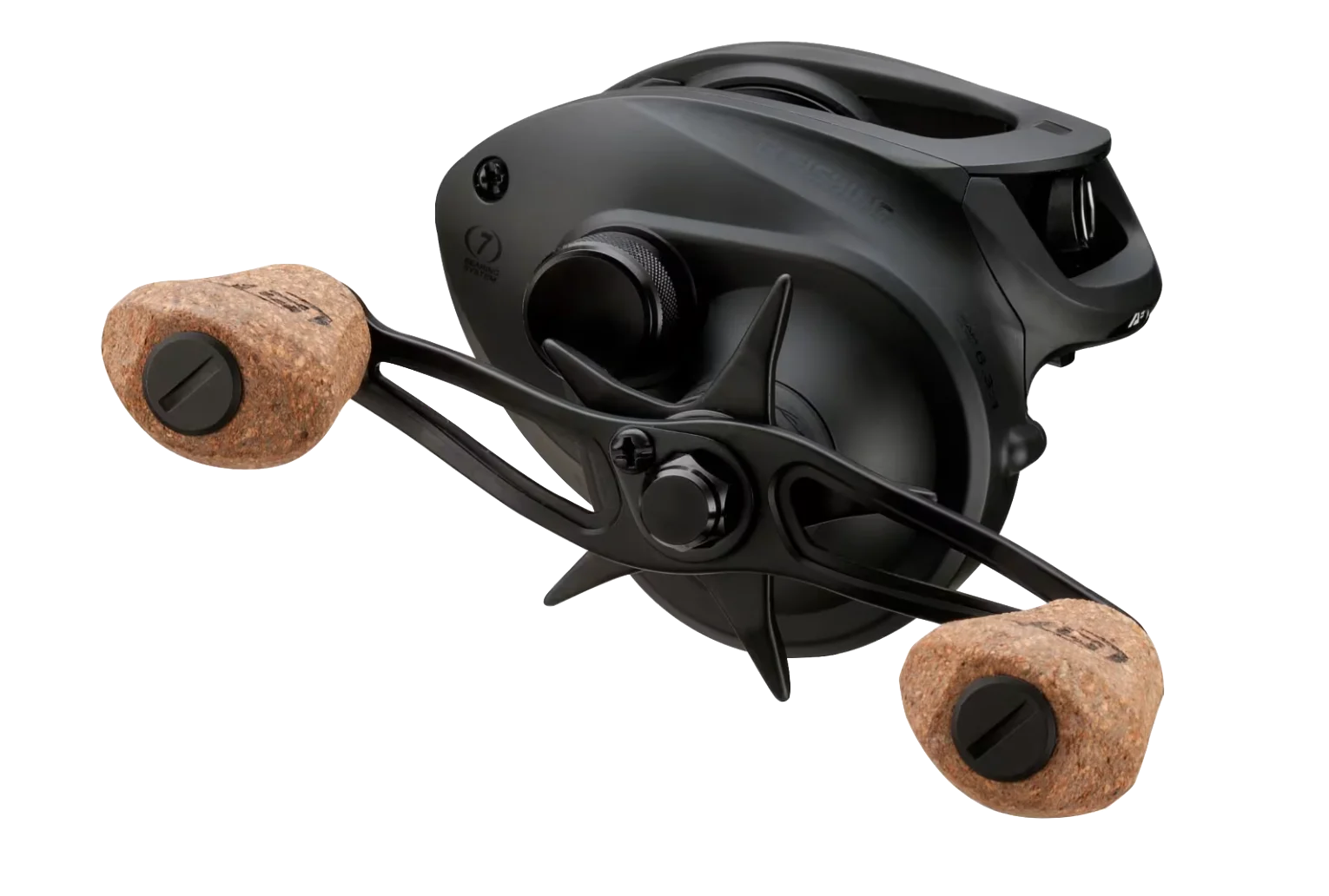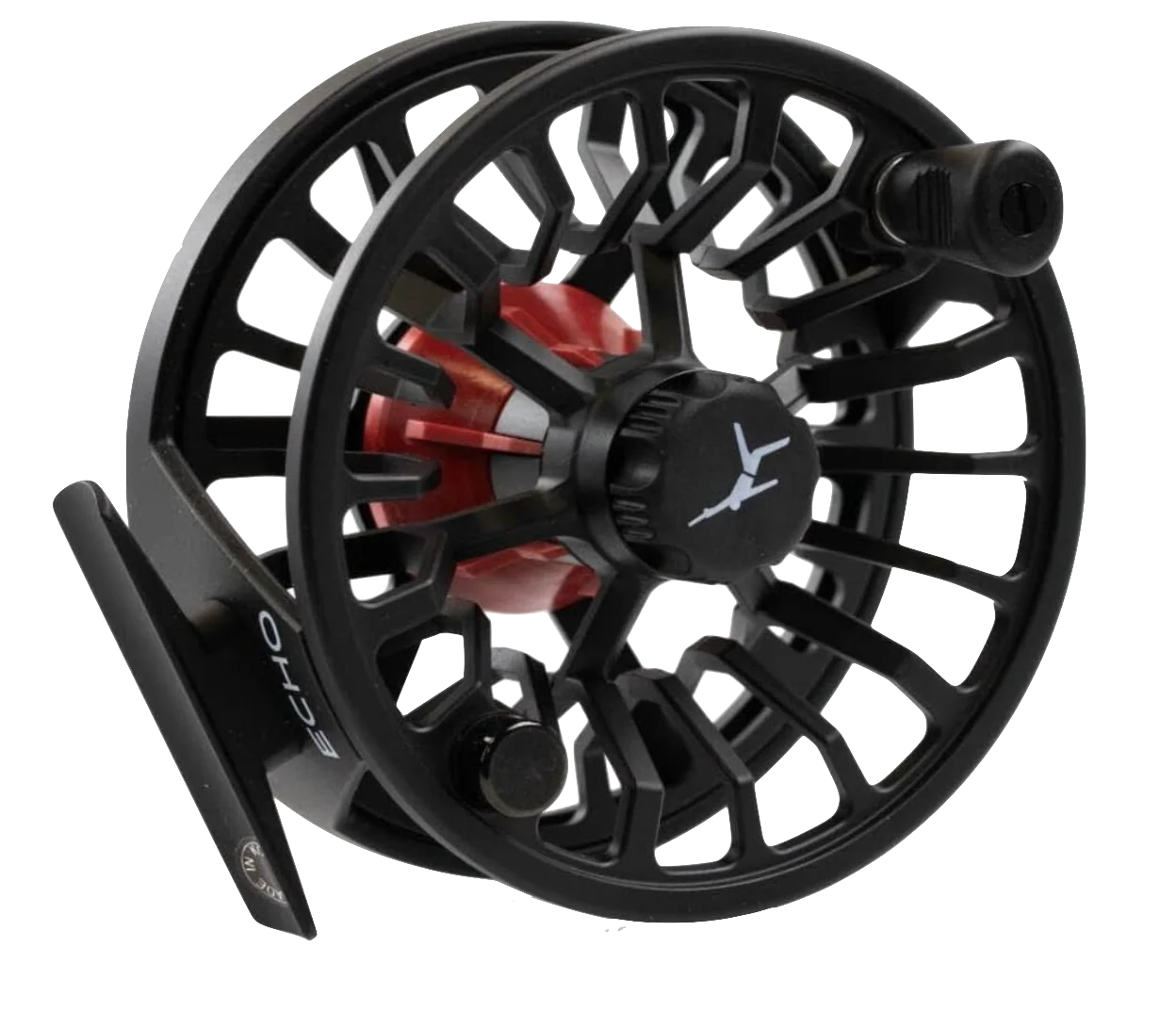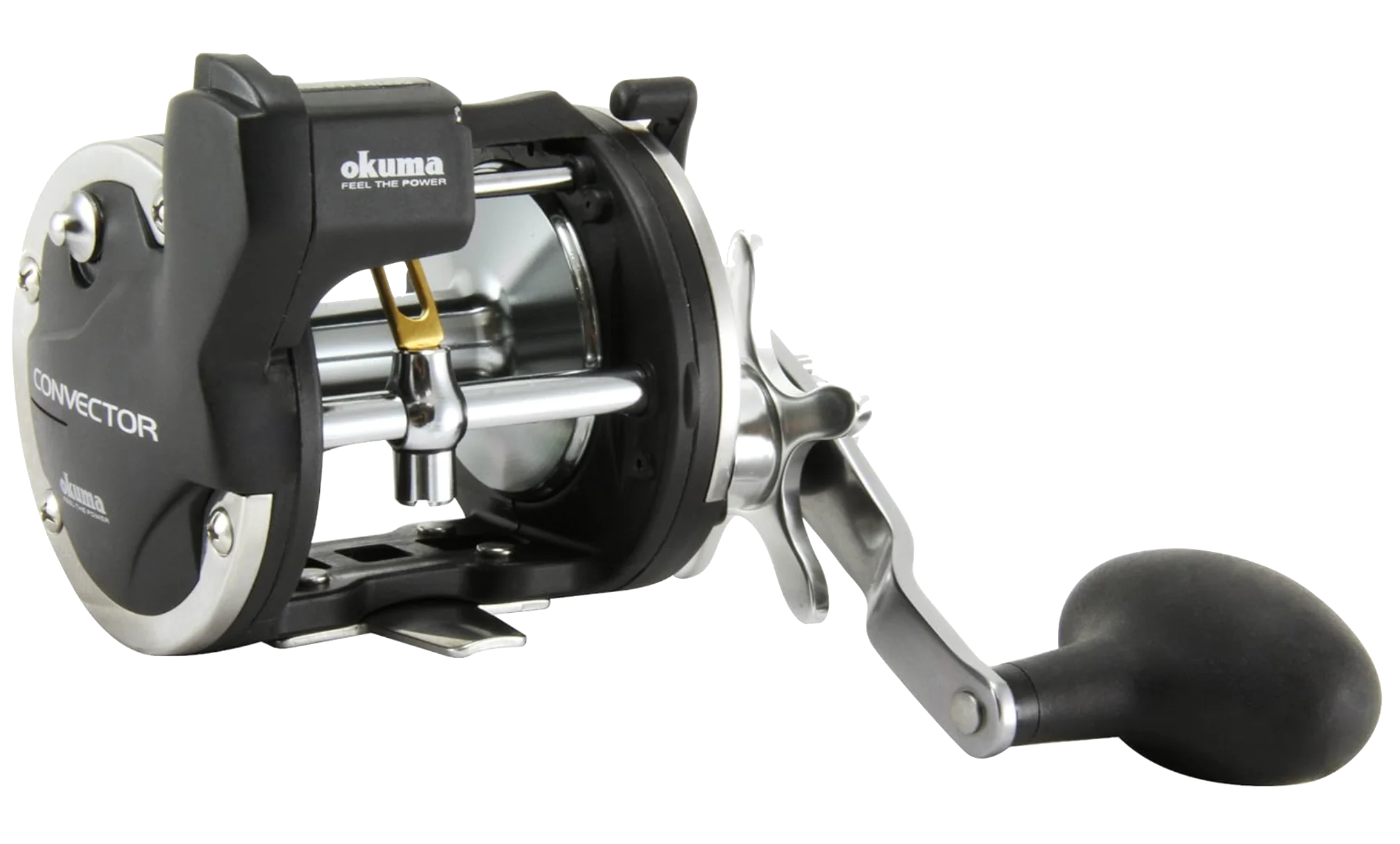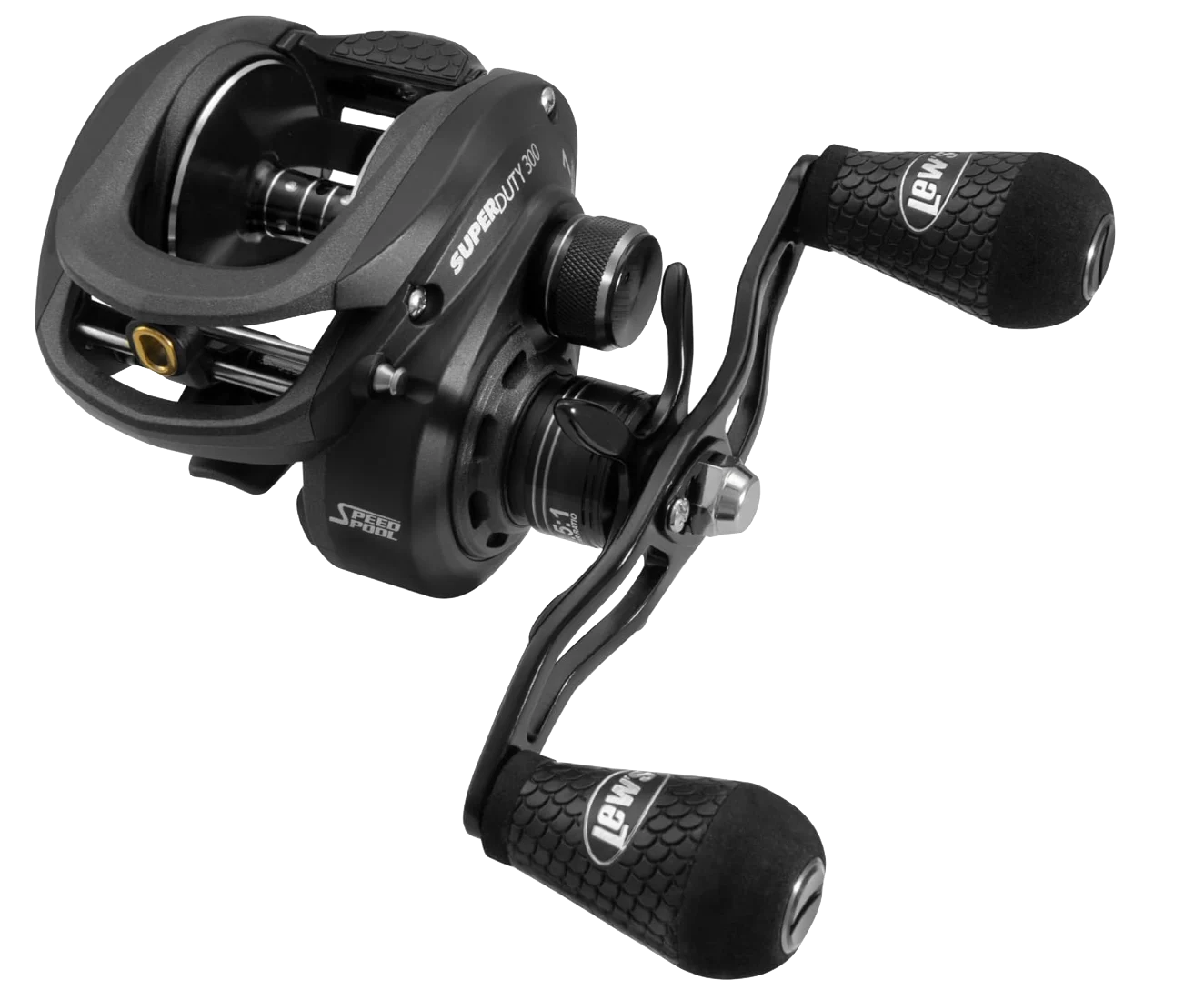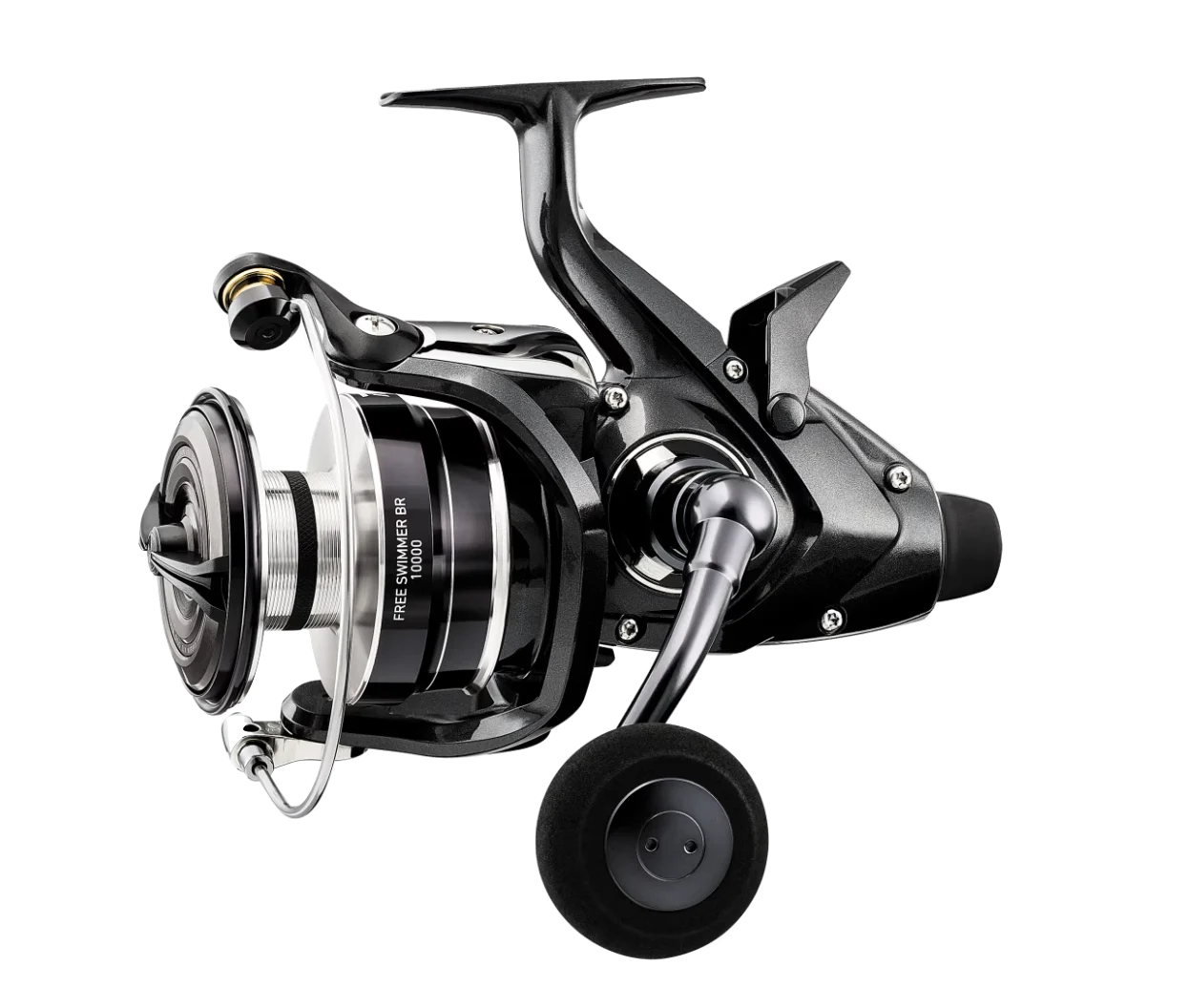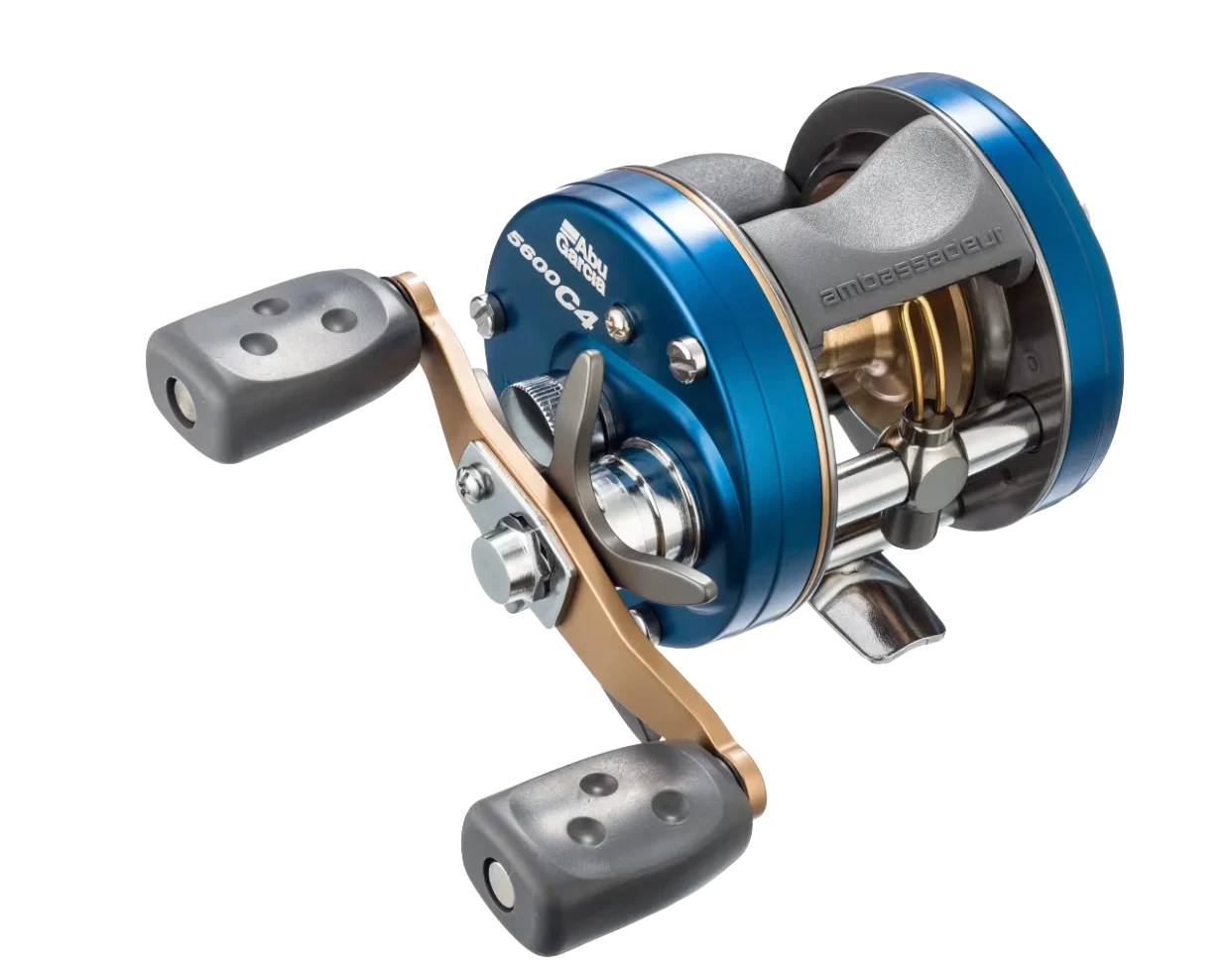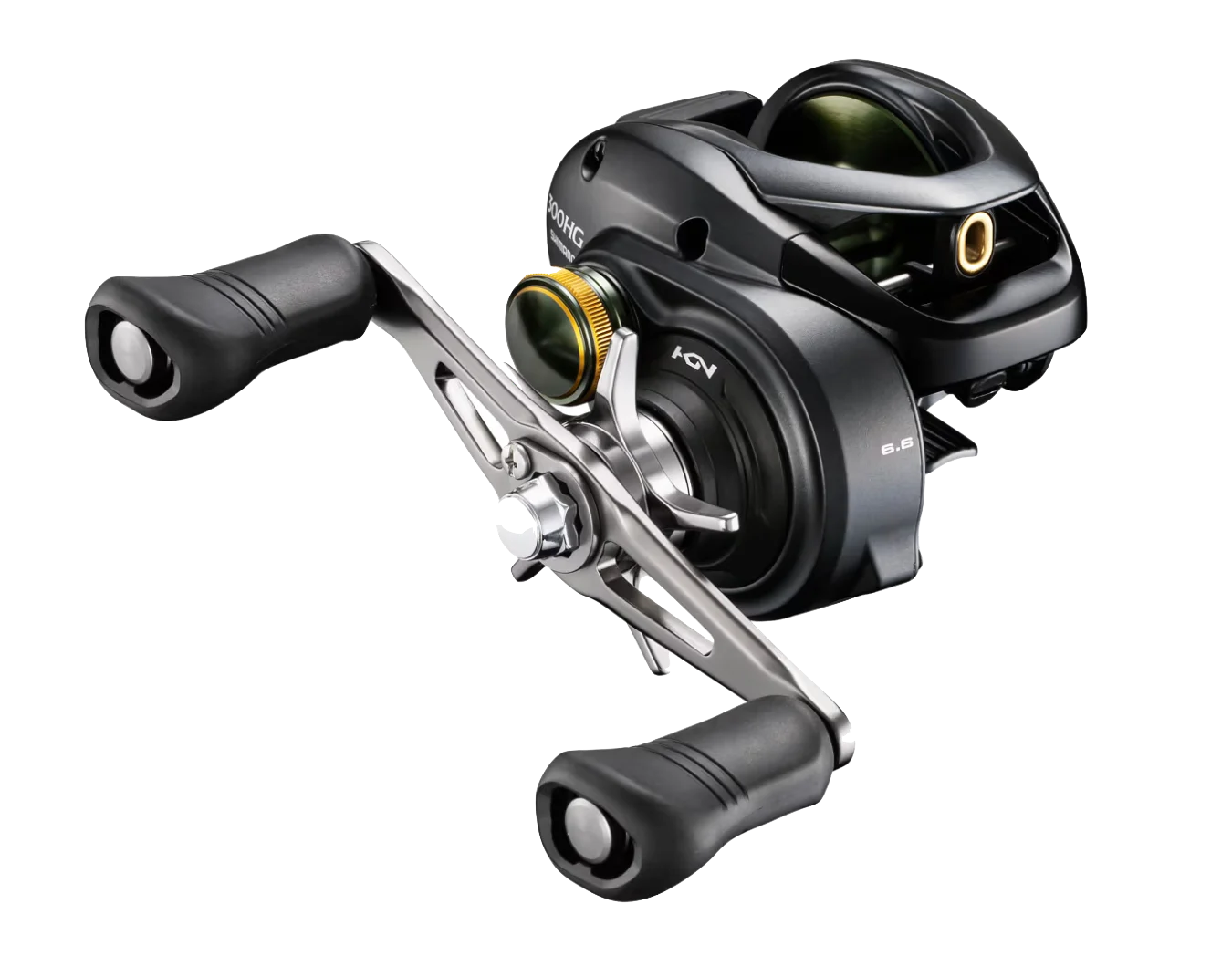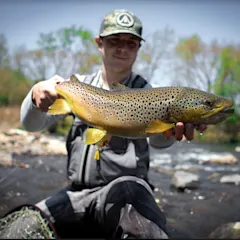We may earn revenue from the products available on this page and participate in affiliate programs. Learn more ›
The right musky reels are critical pieces to landing the so-called fish of 10,000 casts. These powerful, toothy fish leave anglers questioning their every decision. While muskies aren’t known for their blistering runs, they are known for powerful strikes and vicious headshakes. Subpar reels result in lost fish and, in some cases, another 10,000 casts for a second chance.
To give anglers an edge over these toothy critters, musky fishermen developed a variety of tactics to even out the odds. These techniques range from casting giant lures to trolling large plugs. For each style, there is a preferred type of reel. Some instances call for large baitcasters, while others require spinning reels. Regardless of the type of reel, they all must handle big baits and have plenty of line capacity for long casts with heavy line. Here are the best musky reels on the market.
Best Overall: Shimano Tranx 400
Best for Trolling: Okuma Convector Line Counter
Best High-Speed: 13 Fishing Concept A3 Gen II
Best for Smaller Lures: Lew’s Super Duty 300 LFS
Best Spinning Reel: Daiwa Free Swimmer
Best Budget: Abu Garcia Ambassadeur C4
Best Baitcaster: Shimano Curado 300 K
Best Fly Reel: Echo Bravo
How We Chose The Best Musky Reels
We’ve chased muskies across the East Coast on famed waterbodies like the St. Lawrence and Niagara Rivers. These different fisheries call for different tactics and we’ve fished for muskies with everything from fly tackle to ten-inch swimbaits. The unpredictability of these fish requires a lot of arrows in the quiver, including big lures, small lures, and natural bait. There are reels that can cover several of these presentations, but sometimes a specialized tool is the best option for the job. We based our selections on the following criteria:
Line Capacity: Can the reel hold enough line for long casts and hard fights?
Gear Ratio: Does the reel excel at burning baits back? Can it retrieve lures slowly?
Drag System: Can the reel withstand the power of monster muskies?
Technique: What style of fishing is the reel designed for?
Comfort: How comfortable is the reel, especially with heavy tackle?
Ease-of-Use: Is the reel easy to tune and cast with?
Best Overall: Shimano Tranx 400
Key Features
Size: 400
Gear Ratios: Two gear ratios: 5.8:1 and 7.6:1
Bearing Count: Five ball bearings and one roller bearing
Max Drag: 18 lbs.
Pros
High- and low-speed versions available
Lightweight (11.6 or 12.0 ounces)
Ergonomic design
Cons
Pricey
Old school Shimano fans may be hesitant to give up their time-tested round reels
Shimano initially developed the wide-ranging Tranx series to battle hard-fighting saltwater fish. Luckily, this reel translates perfectly to the musky world. Everything about them is beefed up, from the handles to the 18-pound drag system. The 400 is the workhorse, but for smaller musky lures, there’s a 300, and for upsized presentations or more line capacity, the 500 gets the call.
Designed as a casting reel, its low profile makes casting large lures all day effortless. You can comfortably palm the reel and work it like you would any bass fishing setup. These reels are available in single-handle or double-handle configurations. While the double handle is great for getting your hand on the reel fast, the added leverage from the single handle is perfect for powerful strikes. I find you can crank on a fish faster and keep them pinned, translating to more fish in the boat.
Best for Trolling: Okuma Convector Line Counter
Key Features
Size: Three sizes—20, 30 and 45
Gear Ratios: Three gear ratios—4.0:1, 5.1:1 and 6.2:1
Bearing Count: Two ball bearings and one roller bearing
Max Drag: 7 lbs.
Pros
Bargain price
Corrosion resistant
Ratcheting drag star allows ultra-precise drag settings
Cons
No high-speed left-handed version
Whether you’re chasing muskies on Lake St. Clair, the St. Lawrence River, or a Canadian shield lake, the best trollers have developed scientific systems to make their spreads most effective. This involves not only the number of baits but also how far and how deep they run. Okuma’s line counting reel makes replicating a setup simple and easy. Once you figure out what depth the fish are at, the counter lets you know precisely when you are in the strike zone.
While the Convectors are inexpensive, they’ll still hold up to hard strikes that threaten to rip the rod out of the holder. They’ve incorporated stabilizing systems for increased durability and high-grade brass main and pinion gears to hold up over time. The biggest size is capable of holding well over 300 yards of mono for deep drops. The drag range is customizable, meaning it’ll slip when you need it to, but hold tight to crank in trophies. And don’t be wary of the low bearing count—this reel is a pleasure to retrieve and is designed for trolling, not casting.
Best High-Speed: 13 Fishing Concept A3 Gen II
Key Features
Size: One size
Gear Ratios: Three gear ratios available, including 8.1:1, 5.5:1, and 6.3:1
Bearing Count: Seven ball bearings
Max Drag: 40 lbs.
Pros
Ultra-strong drag
Double paddle and power handle options
Anti-corrosion treatment
Cons
May not hold enough heavy line for some presentations
Muskies are known for following lures and turning away at the last minute. Sometimes the best way to combat this annoying indecisiveness is with a high-speed retrieve that forces them to react. Burning a bait back and into a figure eight will often draw strikes, but only if you have a fast reel.
In the Concept A3 Gen II, 13 Fishing has built a reel that brings ultra-high-speed retrieve ratios to the table but still packs a punch with 40 pounds of drag. It is a true marriage of form and function. The reel is packed with features, including a brass drive gear, a corrosion-resistant coating, and a low-friction six-way braking system. Musky fishing is physically demanding under any conditions, so having a reel that gives you a mechanical advantage is a worthy investment. The Concept A3 Gen II is a lightweight solution that gives anglers unmatched stopping power in a low-profile package.
Best for Smaller Lures: Lew’s Super Duty 300 LFS
Key Features
Size: 300
Gear Ratios: 6.5:1 and 7.2:1 gear ratios
Bearing Count: Six stainless steel bearings and one clutch bearing
Max Drag: 24 lbs.
Pros
Multi-species use
Lightweight for all-day casting
24 pounds of max drag power
Cons
Not ideal for larger musky lures or baits
Lew’s has taken the guts of one of their tournament-proven bass reels and beefed up every aspect of it, from the double-shielded bearings to the thumb bar and drag system. While not a through-and-through musky reel, it’s a great option for anglers targeting them a few times a year. The braking system is highly adjustable, allowing you to throw different-sized lures in varying wind conditions. Plus, the Winn Dri-Tac knobs are truly non-slip in any condition.
The impressive 24 pounds of drag is more than enough to put the brakes on a trophy musky. If I find myself in a situation where muskies are around, but I wasn’t planning on fishing for them, this reel can handle the big baits and powerful headshakes of these fish.
Best Spinning Reel: Daiwa Free Swimmer
Key Features
Size: 8,000 and 10,000 sized reel
Gear Ratios: 4.7:1 gear ratio
Bearing Count: 4 + 1 ball bearing system
Max Drag: 22 lbs.
Pros
Reasonably priced
Special features for live bait presentations
Advanced Tournament Drag (ATD) system is strong but has low startup inertia
Cons
The smallest size is 8000
Conventional level wind reels get most of the love in the musky world, but there’s no shame or harm in using a spinning reel. In fact, they are better for specific techniques like fishing live bait. Daiwa’s beefy Free Swimmer allows big toothy critters to take natural bait without resistance, making them less likely to drop your offering. The specialized Bait N’ Run Clutch allows anglers to switch to a free spool for live lining bait. With the flip of a switch, the drag reengages to your preset strength to start the fight. That leads to more and better hookups.
Even if you use natural bait sparingly, the Free Runner still operates perfectly for casting and reeling. It has oversized gears, a beefy tooth pattern, and a round EVA handle that allows you to retain a grip during the retrieve and subsequent fight. The 8000-size reel balances out heavy spinning rods well and has plenty of line capacity to bomb casts and handle long runs.
Best Budget: Abu Garcia Ambassadeur C4
Key Features
Size: Two sizes, 5600 and 6600
Gear Ratios: 6.3:1 gear ratio
Bearing Count: Four stainless steel bearings and one roller bearing
Max Drag: 15 lbs.
Pros
Heavy-duty, battle-tested design
Carbon matrix drag system
Substantial line capacity but still reasonably lightweight
Cons
Only one gear ratio available
The round Ambassadeur is an iconic reel in the fishing world. While it may not look modern, plenty of top musky chasers trust its proven design and simple yet sophisticated construction. The carbon matrix gearing is a substantial improvement over the already-solid systems these reels employed yesteryear. Plus, the centrifugal braking system is a no-nonsense way to keep your line in check. This round reel is as versatile as it is affordable. Anglers can pair it with casting rods for throwing big baits at long distances or use it as a trolling reel with oversized plugs. There is an even less expensive C3 version, but it lacks a thumb bar for spool release, so keep that in mind when choosing one over the other.
Best Baitcaster: Shimano Curado 300 K
Key Features:
Size: 300
Gear Ratios: 4.7:1 and 6.6:1
Bearing Count: 5+1 bearings
Max Drag: 22 lbs.
Pros:
Built to the demands of tournament anglers
Easy to adjust and cast
Oversized spool for added line capacity
Cons:
Only available in a two-handle version
If you were to look inside any professional bass angler's boat, chances are you’d find a Shimano Curado. Now offered in a 300-sized package, the Curado 300 K is made with big fish in mind. The spool is capable of holding nearly 200 yards of 50-pound braid, perfect for casting heavy lures at long distances. The entire package is oversized to pair with heavy musky rods and easy to fine-tune for big baits. It features Shimano’s S3D Spool balancing system and a VBS braking system to get the most out of every cast while minimizing backlashes.
Best Fly Reel: Echo Bravo
Key Features:
Size: 7/9, 8/10, 10/12 wt
Gear Ratios: N/A
Bearing Count: N/A
Max Drag: N/A
Pros:
Powerful and fully sealed drag system
V-shaped spool for extra backing capacity
Tight tolerances for a die-cast reel
Cons:
Only comes with a one-year warranty
The genius mind of Tim Rajeff designed the Echo Bravo with performance and affordability in mind. The Bravo is a die-cast reel, meaning it is poured from a mold. Typically, cast reels aren’t reliable. They are best for small water and fish that don’t pull hard. The Bravo is the exception. It has some of the tightest tolerances I’ve seen and a drag comparable to thousand-dollar tarpon reels. The spool has a unique V-shape. This allows anglers to stack more backing for when a fish wants nothing to do with you. It’s offered in sizes ranging from 8-weights up to 12-weights. I find the 10/11-weight model pairs well with most two-handed musky sticks. At a fraction of the price of other reels, anglers can invest in the proper rods and lines needed to cast 12-inch flies.
Things to Consider Before Buying The Best Musky Reels
They are dubbed as the “fish of 10,000 casts” due to the difficulty of not only landing a musky, but just hooking one. When the time comes, your gear must be fine-tuned and ready to go. This means musky lures, flies, rods, and most importantly, reels. Muskies are very powerful and have sharp teeth. One wrong move and they’ll break you off. Make sure to consider these factors before you purchase your next musky reel:
Line Capacity
Muskies usually demand heavy line to withstand the size of the lures and baits needed to draw a strike. That could mean monofilament, fluorocarbon, braid, or wire, but it will likely be strong, and you may need a lot of it. Don’t skimp on storage capacity because it will impact every aspect of the process.
Gear Ratio
Sometimes muskies want their meals served up in a slow, gliding manner, and other times, it takes a warp speed retrieve to tempt them. Choose the speed that will make it most comfortable to achieve what you need for success. Traditionally, super high-speed reels sacrifice cranking power on big fish, but that has changed for the better in recent product generations. Look for a gear ratio that can burn a bait back and retrieve a lure slowly.
Drag System
Muskies don’t necessarily go off on long, spool-emptying runs, but they will pull line either on the strike or surge at boatside, and if your drag doesn’t engage at exactly the right increments, it will lead to pulled hooks and lost fish. The drag not only needs to be easily adjustable, but also be able to retain its power and smoothness during runs.
FAQs
Q: Do I need an expensive reel for musky fishing?
You do not need an expensive reel for musky fishing. It is more important that the reel be suited to the task at hand, whether that be casting, trolling, or some other application. Fortunately, there are now many high-quality reels in the low- to mid-price range. Be sure to check bearing counts and other key features to make sure that no corners have been cut to reduce the price.
Q: Can I use a spinning reel for musky?
A spinning reel (with a matching spinning rod) can certainly be used for musky fishing. It still needs to have proper line capacity and a drag system meant to withstand the power of these vicious predators. Spinning reels are used primarily for casting and live bait fishing, not as much for trolling. When using a spinning reel it is critical to take steps to prevent line twists.
Q: What is a good gear ratio for musky fishing?
While higher and lower speed reels have specific applications, something with a gear ratio between approximately 6:1 and 7:1 will cover a remarkably wide range of applications. It’s critical to be able to slow down or speed up when the muskies get finicky, and they clearly seem to prefer particular speeds or cadences on many days.
Q: Is drag really that important for musky fishing?
Muskies are known for powerful boat side strikes. When the time comes having a powerful drag is crucial. A strong drag system gives anglers the mechanical advantage needed to drive hooks through a muskies bony mouth and tire them out quickly. While you can land them with lighter lines and weaker drags it is far from ideal.
Best Musky Reels: Final Thoughts
Even the best and most successful musky anglers will likely experience long periods of frustration. When you think you have these fish figured out, they change or show some other form of wariness. Your equipment should make the search easier and more pleasurable rather than compounding the heartache. That starts with reels. If they’re cumbersome to use or fail at inopportune times, they will ultimately make the brief windows of happiness even more infrequent.
Why Trust Us
For more than 125 years, Field & Stream has been providing readers with honest and authentic coverage of outdoor gear. Our writers and editors eat, sleep, and breathe the outdoors, and that passion comes through in our product reviews. You can count on F&S to keep you up to date on the best new gear. And when we write about a product—whether it’s a bass lure or a backpack—we cover the good and the bad, so you know exactly what to expect before you decide to make a purchase.


